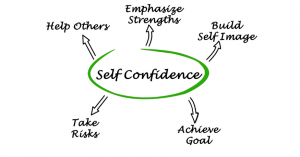
2022 is just around the corner. So what is the #1 thing you and your team can do to be ready for a dynamic year? Hint: it starts with hiring and working with the right executive coach. What are you waiting for?
As everything changes, including how we work, being coachable is more critical than ever.
There are technological advances and new, expanding global markets. These require individuals to work well together, be productive, and improve performance as a team in new ways.
How does this impact leadership? What is now required of leaders to excel with their teams?
The #1 way to improve individually and as part of a team is by being coachable.
“Coachability requires a willingness to listen, learn, and implement changes with a positive attitude.” Jeannette Seibly
Being Coachable has You:
- Overcome the mediocrity slump
- Become innovative results-producers
- Be open to learning, especially when you don’t want to
- Be willing to take risks while being discerning about the details
- Encourage diverse ideas and embrace change
- Become an influencer and future leader
6 Keys to Be Coachable and Have a Great Coaching Experience
- Listen and learn from the coach’s experience
- Welcome feedback and recognize when your defenses kick in
- Get rid of excuses and ask questions when stuck
- Dial-up your humbleness and dial down your ego when offered new ideas
- Make the necessary changes and do the work as it was meant to be done
- Celebrate success and self-promote your dynamic results
All successful leaders have coaches and mentors to bounce off ideas, talk out solutions, and confront uncomfortable truths. Your coach is there to guide you to achieve success.
©Jeannette Seibly, 2022 All Rights Reserved
 Jeannette Seibly is The Leadership Results Coach. She has guided the creation of three millionaires and countless 6-figure income professionals for almost 30 years. Her brags include being an award-winning international executive and family business management consultant, and keynote speaker. Recently, she was able to add another brag. She is now an international Amazon Bestselling author of, The Old Wooden Rocker. Have questions? Need a speaker or facilitator? Contact Jeannette for a confidential conversation.
Jeannette Seibly is The Leadership Results Coach. She has guided the creation of three millionaires and countless 6-figure income professionals for almost 30 years. Her brags include being an award-winning international executive and family business management consultant, and keynote speaker. Recently, she was able to add another brag. She is now an international Amazon Bestselling author of, The Old Wooden Rocker. Have questions? Need a speaker or facilitator? Contact Jeannette for a confidential conversation.
A Note from Jeannette about being ready for 2022: although many people have already checked out for the year, this is a great time to complete what worked during 2021 before writing down your 2022 goals and action plans. Do you want to get the most out of 2022? If yes, contact me for a confidential conversation for a guided team or individual exercise to prepare for a dynamic 2022.
One of the top 2022 goals for business professionals is to be an influencer. Someone who offers ideas and is heard! Learn how: Get your FREE copy of Eight Tips to Increase Your Ability to Influence.


 Jeannette Seibly is The Leadership Results Coach. She has guided the creation of three millionaires and countless 6-figure income professionals for almost 30 years. Her brags include being an award-winning international executive and family business management consultant, and keynote speaker. Recently, she was able to add another brag. She is now an international Amazon Bestselling author of, The Old Wooden Rocker. Have questions? Need a speaker or facilitator?
Jeannette Seibly is The Leadership Results Coach. She has guided the creation of three millionaires and countless 6-figure income professionals for almost 30 years. Her brags include being an award-winning international executive and family business management consultant, and keynote speaker. Recently, she was able to add another brag. She is now an international Amazon Bestselling author of, The Old Wooden Rocker. Have questions? Need a speaker or facilitator? 







